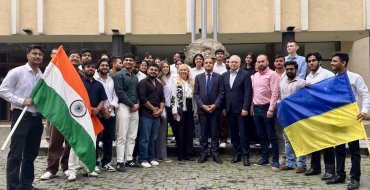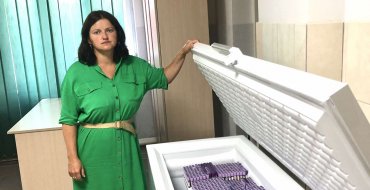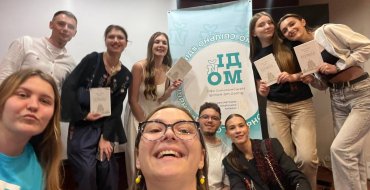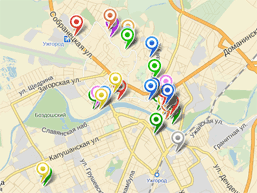The first driving school for people with disabilities in Zakarpattia was opened in UzhNU
A comfortable classroom on the first floor of the university administration, sign language interpretation or distance learning if needed, two special cars for practice: UzhNU's driving school is now available for people with disabilities. The Media Center knows how to get to the school, for whom it is available and how long it lasts.
UzhNU Rector Volodymyr Smolanka said: “The driving school at the university has been in existence for 2 years. The project is aimed at enabling people to learn to drive. Today is a small but important event: now we have the first 2 cars that are equipped to teach people with disabilities. This is important, because quite a few of our defenders are returning from the front with injuries. This is the first driving school in Zakarpattia that has a certificate for training people with disabilities.”
The theoretical course lasts 4 weeks. The first 5 students have already passed the theory exam: three women with hearing impairments and two veterans with musculoskeletal injuries. The driving school provides sign language interpretation, and the classroom itself is located on the 1st floor, so it is easy to get to even in a wheelchair. There are 7 weeks of driving practice ahead.
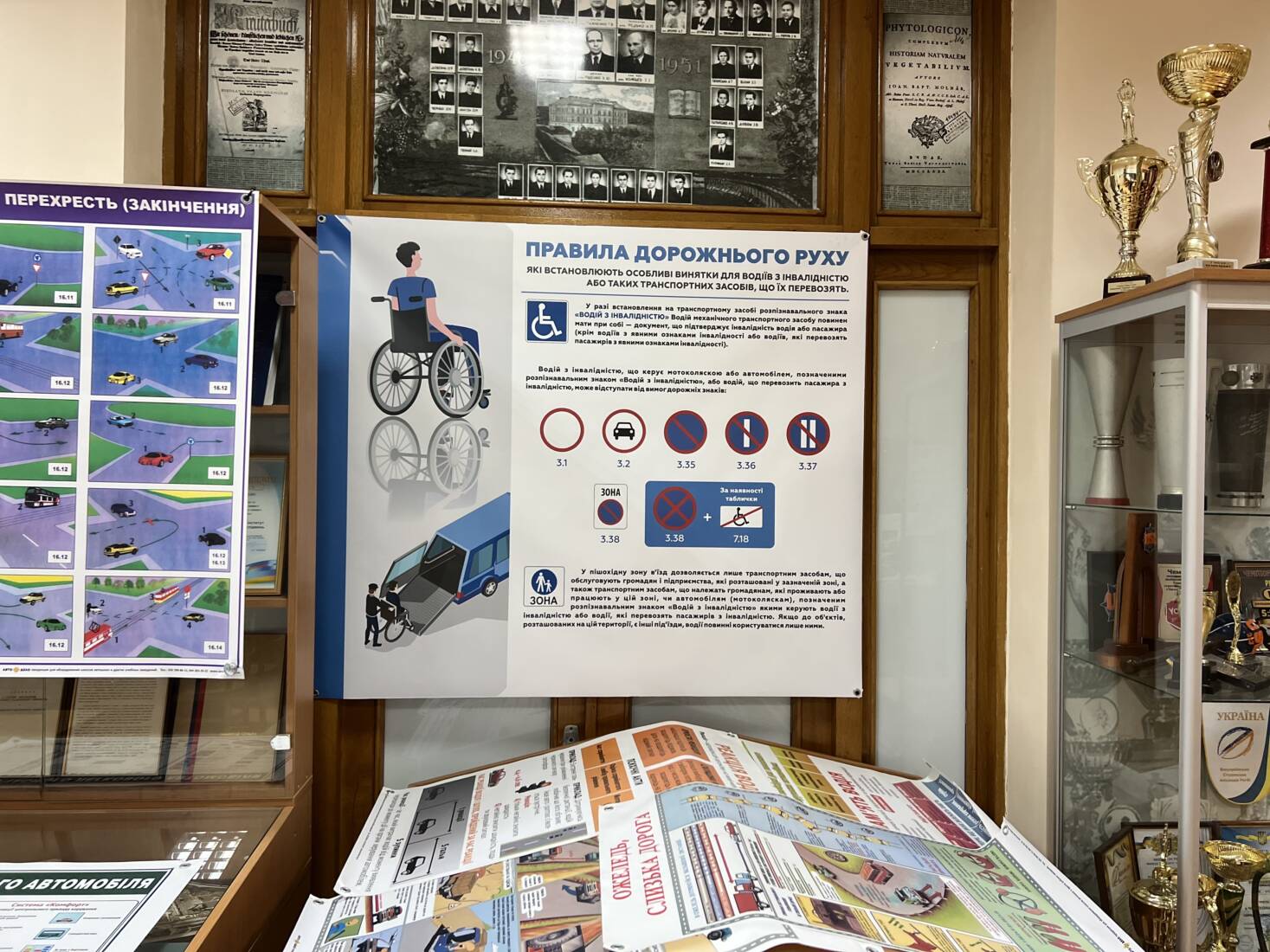
Two cars (one with an automatic and one with a manual transmission), which are adapted to the needs of people with disabilities, were provided by the Transcarpathian Regional Association of Motor Vehicle Operators as part of the initiative of First Lady Olena Zelenska to introduce barrier-free access.
Konstantin Kashula is a veteran. He is among the first students of the driving school for people with disabilities. He tells us: “In my 35 years, I never thought about owning a car, I thought it was better to call a taxi. But after the war, I decided that I wanted to drive myself, it would save time, be convenient to get around and I would spend less on taxis.”
The cost of training the pilot group was covered by the grant. For 2025, the region is developing a support program for veterans to study for free.





